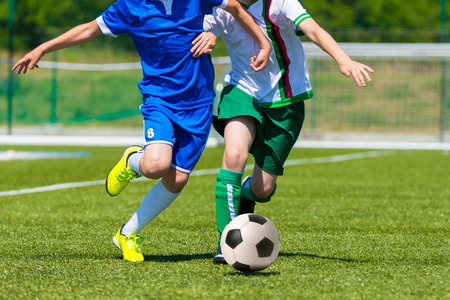The day of a game is a stressful time for athletes and parents alike. Athletes are putting their efforts on the line and must accept that those efforts don’t always pay off in sports. Parents want the best for their children and it pains us beyond pale to see our kids not find the success that they want so much.
Because of this impact on them and us, we as parents want to do everything we can to help them both before and after games. This is where parents have a tremendous capacity to engage in magical thinking. Let me explain.
As the parents of our children, we think we have a lot of power over them. And, to a great extent we do, having been the most influential forces in who they are as evolving people. And this belief in that power to impact our children extends down to how they do on game day. Parents so want to believe that if they just say the right thing, their kids will magically play incredibly well.
Wanting to leverage that power, a common question I’m asked by parents is: “What can I say to my kid on game day that will help them have a successful performance?” You do have some seemingly magical power, but, sadly, that power can only hurt your kids’ efforts.
Here’s what I believe. Nothing you can say to your kids will make them play better. Not “You can do it!,” “We believe in you!,” “Have fun!,” “Try your hardest,” or “Go for it!” You can’t psych them up, remind them of what they should work on, or somehow increase their motivation, confidence, intensity, or focus. They will play as well as they are capable on that day regardless of the “motivational” lines or “inspirational speeches you give them.
But, unfortunately, you do have the ability to ensure that they don’t play well with what you say to them. Your words can create pressure, make them nervous, shift their focus to results, cause them to think about you, cause them to think about their competitors, reduce their motivation and confidence, and make them afraid to race. “You can win!,” “Use good technique!,” “We’ll be cheering for you!,” or “Go out there and beat Johnny [or Suzie]!” are all pretty much a kiss of death for your kids on game day.
I have two suggestions before a game. Before they join their team to warm up, give them a big hug and say, “I love you!” Then, stay away from them until after the game. If they see you before the game, resist the urge to say something and simply smile and give them a big thumbs up or blow them a kiss. And, BTW, as the father of two young athletes, I do my best to practice what I preach. And, yes, it’s really difficult.
Another question I’m also frequently asked is: “What do I say to my kid after a game?” My first piece of advice is, whether they had a good game or bad game, don’t rush right up to them. An important part of your kids learning to deal with both success and failure in sports (and life) is to allow them to sit with their performance, deeply experience whatever emotions they might feel (whether frustration, disappointment, elation, or joy) and figure out for themselves what they think of their efforts. If they had a great game, you want them to be able to revel in their success and allow those good feelings to sink in deep. If they had a disappointing game, your first urge is to rush up to them and protect them from the pain of failure by comforting, assuaging, and placating them. That is the worst thing you can do. One of the great emotional lessons your young athletes can learn is how to deal with the inevitable ups and downs that will occur in their sports lives. And those lessons require that they be allowed to feel bad. So, success or failure, give your young athletes the space to fully experience their performances before you swoop in and give them congratulations or condolences.
Once you give them that space, ideally, you want them to come to you rather than you go to them. When you do connect, what do you say? If they had a great game, the most common refrains I’ve heard include “You won!,” “You were so good!,” and “You were a star out there!,” Suffice it to say, none of these comments are very helpful to your children.
If they had a game that you know is going to be disappointing to them, don’t try to make them feel better; it won’t work. Comments such as “You’ll get ‘em next game!,” “I thought you played really well!,” or “It doesn’t matter.” won’t be helpful at all. You can’t just make young athletes’ disappointment go away and you don’t want it to just go away. If those unpleasant feelings just disappear, your children miss out on an essential opportunity to experience their emotions and to gain emotional mastery.
If they had a game that you know was good, don’t feel compelled to tell them how good a game it was; they know when they “done good.” So, there’s really no reason for compliments such as “You were awesome!,” “Good job!,” or “Way to go!” Their actual success is all they need to validate their efforts, build their confidence and get or keep them excited about sports participation. Plus, unless you played or coached their sport at a high level, your comments have about as much credibility as, well, someone who doesn’t know anything about their sport.
I have two suggestions for what to say and do after a game, whether a success or failure. First, just like before their game, give a hug and tell them, “I love you.” If they are really sad after a disappointing game, don’t say anything more. Going back to that power we think we have to make our kids feel magically better, but don’t really have, just hold them close and be fully there with them in their sadness. Yes, they feel sad, which is hard on any parent, but they also feel supported because you’re there.
Second, I learned this from Wayne Bryan, the father of the multiple Grand Slam tennis doubles champions, Mike and Bob Bryan. His advice, and what he did after every match with his boys, was to simply say, “Where do you want to eat?” The message you send your young athletes is that you’re at the game, so you obviously care about their sports. At the same time, you’re also sending them a message that how they did wasn’t that important to you. And, especially after a disappointing loss, Wayne said that he just wanted his boys to get the messages that they’ll be okay and that life goes on. And I can’t think of better messages to send to our young athletes after they put so much of themselves into whatever sport that they have chosen to pursue.
Want to be the best sport parent you can be? Take a look at my online course, Prime Sport Parenting 505: Raise Successful and Happy Athletes .





